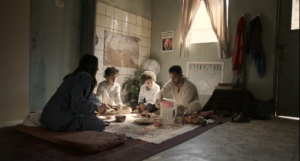The Wounds and the Gifts Are Inseparable
Instead of raging about the Canadian internment of 21,000 citizens of Japanese ancestry during WW II, the novel "Requiem" delicately probes the complex adjustments we make to live with our sorrows.Instead of raging about the Canadian internment of 21,000 citizens of Japanese ancestry during WW II, the new novel "Requiem" probes the complex adjustments we make to live with our sorrows.
“Requiem” A book by Frances Itani
Frances Itani’s new novel, like its predecessors “Deafening” and “Remembering the Bones,” addresses a powerful emotional situation with unsentimental rigor. Her economy and discipline are all the more remarkable because “Requiem” deals with a shameful episode in Canadian history that invites rhetoric and recriminations: the internment of 21,000 citizens of Japanese ancestry during World War II. But instead of raging, “Requiem” delicately probes the complex adjustments we make to live with our sorrows, adjustments both necessary and confining.
Not that Itani scants the everyday cruelties and blatant injustices her protagonist endured. Bin Okuma was a little boy when his family and others in the Japanese Canadian fishing community on Vancouver Island’s west coast were forced from their homes and saw their boats auctioned off by government order: “A prudent look to the future,” the adult Bin notes sardonically, “ensuring that … there would be nothing to come back to.”
Fifty-five years later, Bin confronts his bottled-up anger when his sister calls to say that their elderly father is asking for him. Although they are estranged, Bin decides to make the long drive from Ottawa to British Columbia to see his father and to visit the site of the internment camp where he spent his childhood.
Bin’s wife, Lena, died a few months earlier, and the loss has unmoored him, setting him on the trail of memories he has long shunned. His work as an artist has allowed him to close in on what he could not face directly. A growing stack of drawings and paintings from far-flung travels attests to his obsession with rivers, inexorably leading him to “the great river that defined our lives in the camp”: the Fraser, in whose waters Bin clung to his father on the day in 1944 when an act of rejection scarred him. He needs to finish his river project, a friend tells him at Lena’s funeral: “You’ve dragged it behind you long enough.”
Bin heads west, accompanied by his dog, Basil (one of the more charming canines in recent fiction), and a folder of family documents assembled by Lena that he refused to read when she was alive. As he travels, scenes from the internment camp and from his marriage flash through his mind, working together to build a faceted portrait of this complicated man. The scarf Bin tenderly wrapped around Lena’s neck in a rare public display of affection recalls the warmth his mother provided with a scarf in their freezing tent. Memories of joyful moments with his son counterpoint Bin’s youthful conflicts with his own father, too hard-pressed by the exigencies of camp life to display sympathy for the boy’s fledgling artistic ambitions.
|
To see long excerpts from “Requiem” at Google Books, click here. |
Okuma-san, a pianist also imprisoned in the camp, fostered those ambitions. The illustrated books and artworks Okuma-san encouraged Bin to peruse sparked the liberating conviction that he “could make up [his] own story” as an artist. The music of Okuma-san’s beloved Beethoven promised that personal pain could be transcended through the act of creation. Denied a piano in the camp, Okuma-san calmly practiced his fingering on a wooden plank, “never giving in to anger.” In this perfectly modulated novel, we see the emotional cost of that suppression, but we see that it enabled Bin to move forward with his life. The wounds inflicted by his past are inseparable from its gifts.
A deliberately understated and ambiguous scene near the end makes us wonder if Bin is drowning his history or getting rid of his ghosts. Perhaps it doesn’t really matter. As Bin drives toward the camp, listening to a recording of the Beethoven string quartet he chose for Okuma-san’s funeral, he’s already taken the more important step of recognizing a love he has denied for years.
Wendy Smith is a contributing editor at The American Scholar and she reviews books frequently for The Washington Post, AARP and The Daily Beast.
©2012, Washington Post Book World Service/Washington Post Writers Group
Your support matters…Independent journalism is under threat and overshadowed by heavily funded mainstream media.
You can help level the playing field. Become a member.
Your tax-deductible contribution keeps us digging beneath the headlines to give you thought-provoking, investigative reporting and analysis that unearths what's really happening- without compromise.
Give today to support our courageous, independent journalists.







You need to be a supporter to comment.
There are currently no responses to this article.
Be the first to respond.